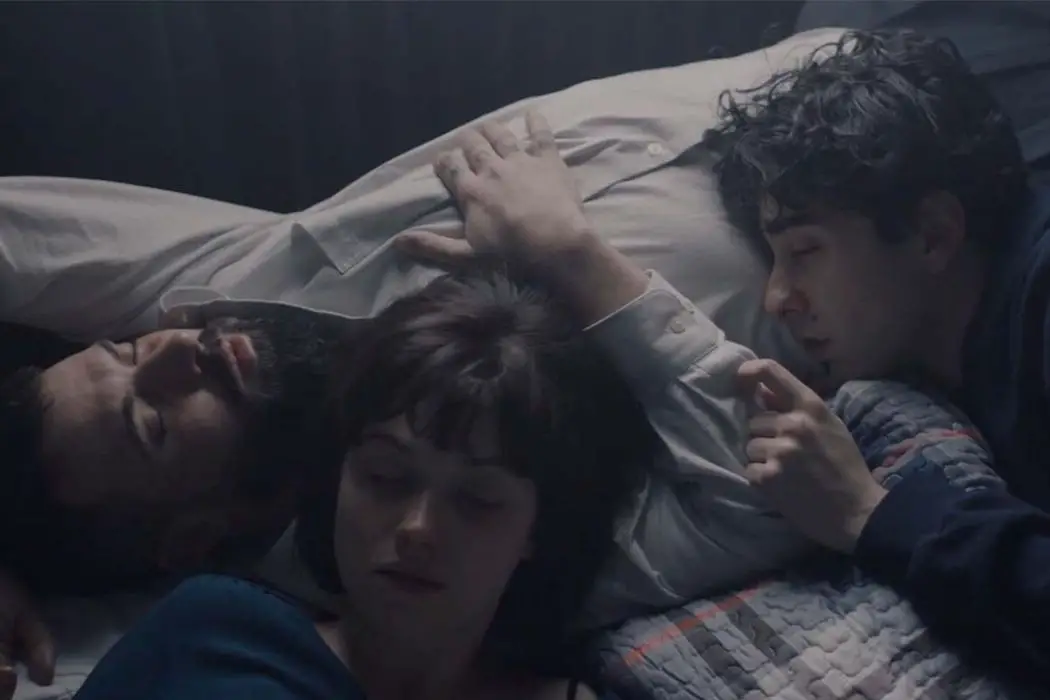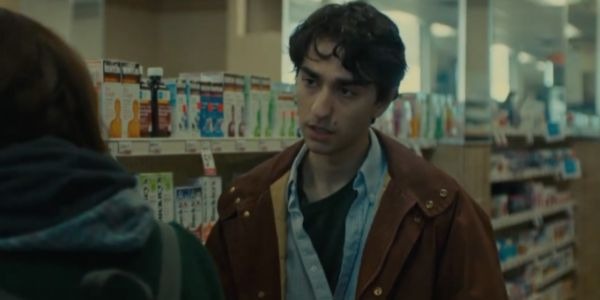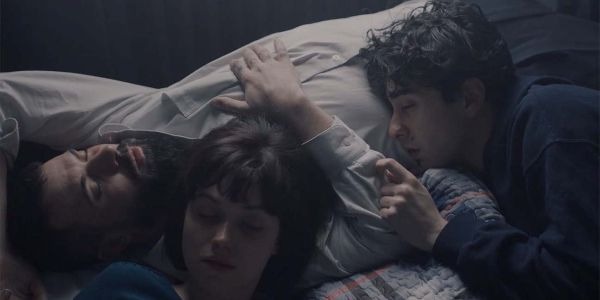CASTLE IN THE GROUND: An Effective, But Muddled Drama

I'm a geeky, yet lovable film fan who adores horror…
In 2012, OxyContin, a powerful opioid pain killer was de-listed in Canada which led to a dangerous trend of fake Oxys to flood to the streets, worsening the already disastrous crisis. Joey Klein has set his new film Castle In The Ground to 2012 with this in mind and the film accurately portrays the crisis on an individual level.
The film follows Henry (Alex Wolff), whose mother is sick and not getting better. When she suddenly passes away Henry is left on his own, feeling guilty and alone. He makes friends with Ana (Imogen Poots), a new neighbour trying to get clean, but the two of them get mixed up with a missing bag of drugs which will have destructive effects on both their lives.
Don’t Do Drugs, Kids
Klein’s take on the opioid crisis is without a doubt a passionate one and it beautifully portrays the tragic circumstances of Henry’s budding addiction. He slips so easily into the haze of drugs it’s almost unrealistic, so smoothly and effortlessly does he crush up one of his mother’s OxyContin pills to ease up the pain of losing her, but unfortunately, Klein’s portrayal is all too reasonable in its practicality.

Alex Wolff, so charming in the Jumanji -franchise and frightened in Ari Aster’s Hereditary, navigates the emotional journey of his character comfortably. Wolff has buckets of natural charisma and screen presence for such a young actor, never resorting to hysteria or melodrama to sell Henry’s personal tragedies. The actor portrays grief, confusion and desperation honestly and with amicable vulnerability.
Imogen Poots also brings a lot of chaotic energy to the screen in the form of Ana, a hardened addict, claiming to be cleaning her act up but also keen on popping a pill here and there. Poots is like a chameleon, effortlessly adapting to whatever narrative, character or mood is given to her to play with. With her powerful turn in Vivarium and this, it sets out to be a great year for Poots already. Keir Gilchrist also shows up as Polo Boy, a local sleaze, delightfully playing against type and surprisingly, quite convincing as a drug dealer.
The dynamic between Ana and Henry is the film’s most interesting aspect. Ana is clearly taking advantage of Henry, by asking for more and more elaborate favours and straight up lying and manipulating him, leading him into even more trouble. Henry, who might normally be able to detect this, is blinded by his need for Ana to need him, like his mother needed him.
Visually And Thematically Bleak
Despite the great performances, Klein’s film feels a little aimless and messy. Its themes feel convoluted and although the film seems to be screaming about a lot, it’s not entirely clear what it wants to say. Perhaps Castle In The Ground is a film simply about how easy it is to crush and ingest a tiny pill, but once the narrative turns into almost a thriller involving guns and drug dealers, the emotional impact is compromised.
Castle In The Ground is not only emotionally and incredibly bleak, but also visually. It’s presented in a 4:3 aspect ratio which makes the entire film feel claustrophobic and tight and all scenes seem to be as void of light as the characters are of hope. It’s effective, but the visuals never evolve and as the film progresses and the narrative moves towards the explosive ending, they start to feel stale and uninspired.

While there are some curious creative decisions on Klein’s part, the bizarre turn to thriller territory the biggest, Castle In The Ground does nail its portrayal of the opioid crisis. The crisis has claimed many lives and while the film is almost completely without hope, it seems to have endless amounts of empathy towards its victims. While Ana, Polo Boy and at times Henry are all morally dubious and arguably make some terrible, selfish decisions in the name of their addiction, Castle In The Ground recognises the elements that go into the making of an addiction. It’s the easiness of crushing that first pill versus the difficultness of trying to get clean.
Conclusion: Castle In The Ground
While Castle In The Ground presents a strange narrative and tonal changes it can’t juggle, it’s a film filled with great, understated performances. Wolff continues to be a force to be reckoned with, bringing Henry’s pain to the screen with credibility and emotional honesty. It’s a vulnerable performance which laments Wolff as a talent to be watched. Castle In The Ground never quite reaches its full potential, but it’s an effective film on the tragedy that is the opioid crisis.
What did you think of Castle In The Ground? Does it portray the opioid crisis accurately? Let us know in the comments!
Watch Castle In The Ground
Does content like this matter to you?
Become a Member and support film journalism. Unlock access to all of Film Inquiry`s great articles. Join a community of like-minded readers who are passionate about cinema - get access to our private members Network, give back to independent filmmakers, and more.
I'm a geeky, yet lovable film fan who adores horror cinema, musicals and my dog Geordie La Forge. I'm from Finland, but based in London.













